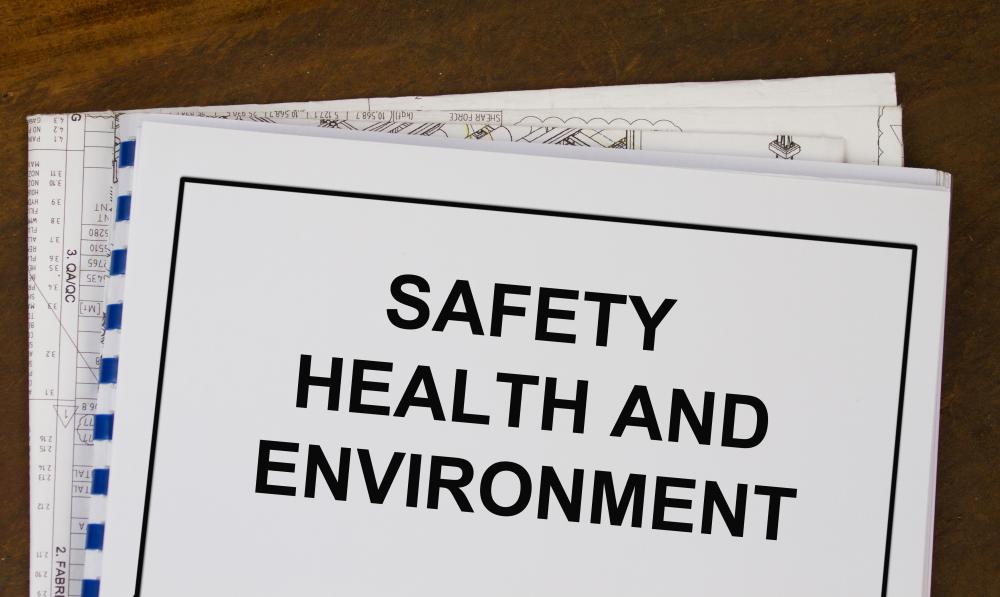At BeautyAnswered, we're committed to delivering accurate, trustworthy information. Our expert-authored content is rigorously fact-checked and sourced from credible authorities. Discover how we uphold the highest standards in providing you with reliable knowledge.
What is Zinc Stearate?
Zinc stearate is a chemical substance that has a white, fluffy, powdered appearance and is usually formed from a combination of stearic acid and zinc oxide. It does not have a strong odor, although traces of a slight fatty acid scent are not uncommon. It is sometimes referred to as octadecanoic acid or zinc salt.
Since zinc stearate will dissolve in alcohol and not in water-based liquids, it is used in many different kinds of commercial products. Its ability to repel water also makes it suitable for many different kinds of applications. Because of this versatility, this substance is used by many different types of companies, from plastic industries to concrete manufacturers.

When used to make plastics, zinc stearate is combined with a co-stabilizing soap called Ba-Cd to help stabilize the plastic. It does this by mixing with the liquid, which helps make the material more fluid — called a plasticizer. This same process is also used in the cosmetic industry to make different kinds of makeup.
It also has a use in the paint industry where zinc stearate is added to lacquers and paint coatings for use as a flatting and sanding agent. For concrete manufacturing, it is mixed as an additive for waterproofing concrete; this same process is also used to waterproof other products, such as, rockwools, textiles, and paper products. Even when left in powdered form, it can be used as a drying lubricant or dusting agent for rubber products.

Since zinc stearate is a chemical and used in so many different types of products, there may be some concern as to its safety when used for cosmetics. Generally, only smaller amounts are considered to be safe for humans. When chronic exposure to larger amounts occurs, it can cause breathing issues, including respiratory distress or acute pneumonitis.
Because of this possibility, the Occupational Safety and Health Administration (OSHA), National Institute for Occupational Safety and Health (NIOSH), and the American Conference of Governmental Industrial Hygienists (ACGIH) have strict guidelines in place that detail the amount of time and acceptable exposure levels that companies and their workers must comply with. These guidelines outline exactly how much contact workers can have with zinc stearate in an hourly, daily, or weekly period. If overexposure does occur, workers must typically wash away the chemical from any affected areas of skin and remove any contaminated clothing. Once initial safety precautions have been taken, they are then administered medical treatment if it is needed.
AS FEATURED ON:
AS FEATURED ON:












Discussion Comments
@shell4life - I, too, wondered why cosmetic manufacturers would even bother to use zinc stearate if it is dangerous. It is used in so many types of makeup. Zinc Stearate salts are used to make eyeshadow, eyeliner, lipstick, mascara, face powders, foundations, and blushes.
The reason for their use is that stearate salts provide lubrication. They also keep the oil and liquid in makeup from separating. Stearate salts increase the oil portion’s thickness in personal care products and in cosmetics. These salts also reduce transparent or clear appearances of these products.
Why do cosmetic manufacturers even use zinc stearate in their products if it could cause complications like these?
Post your comments